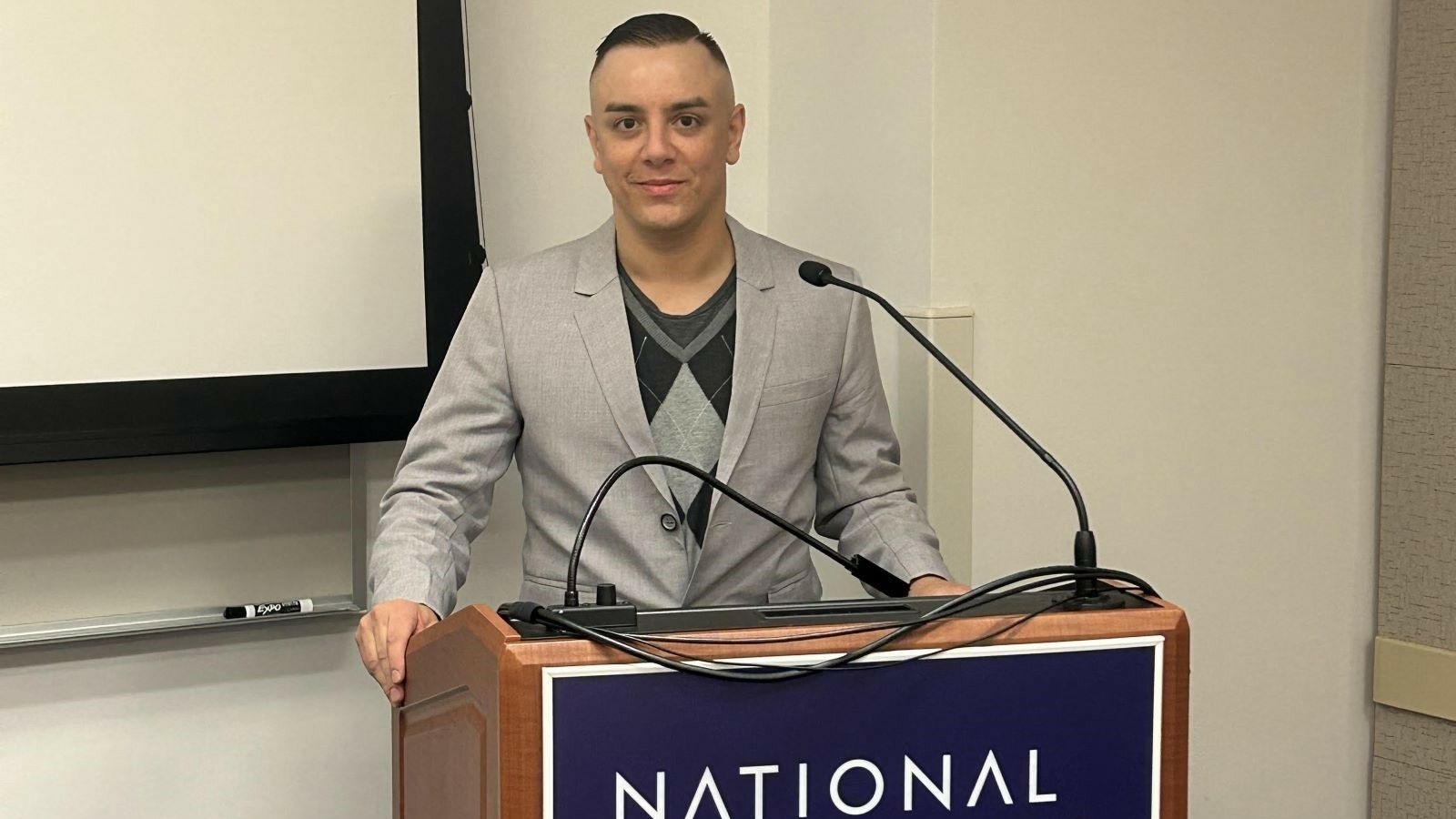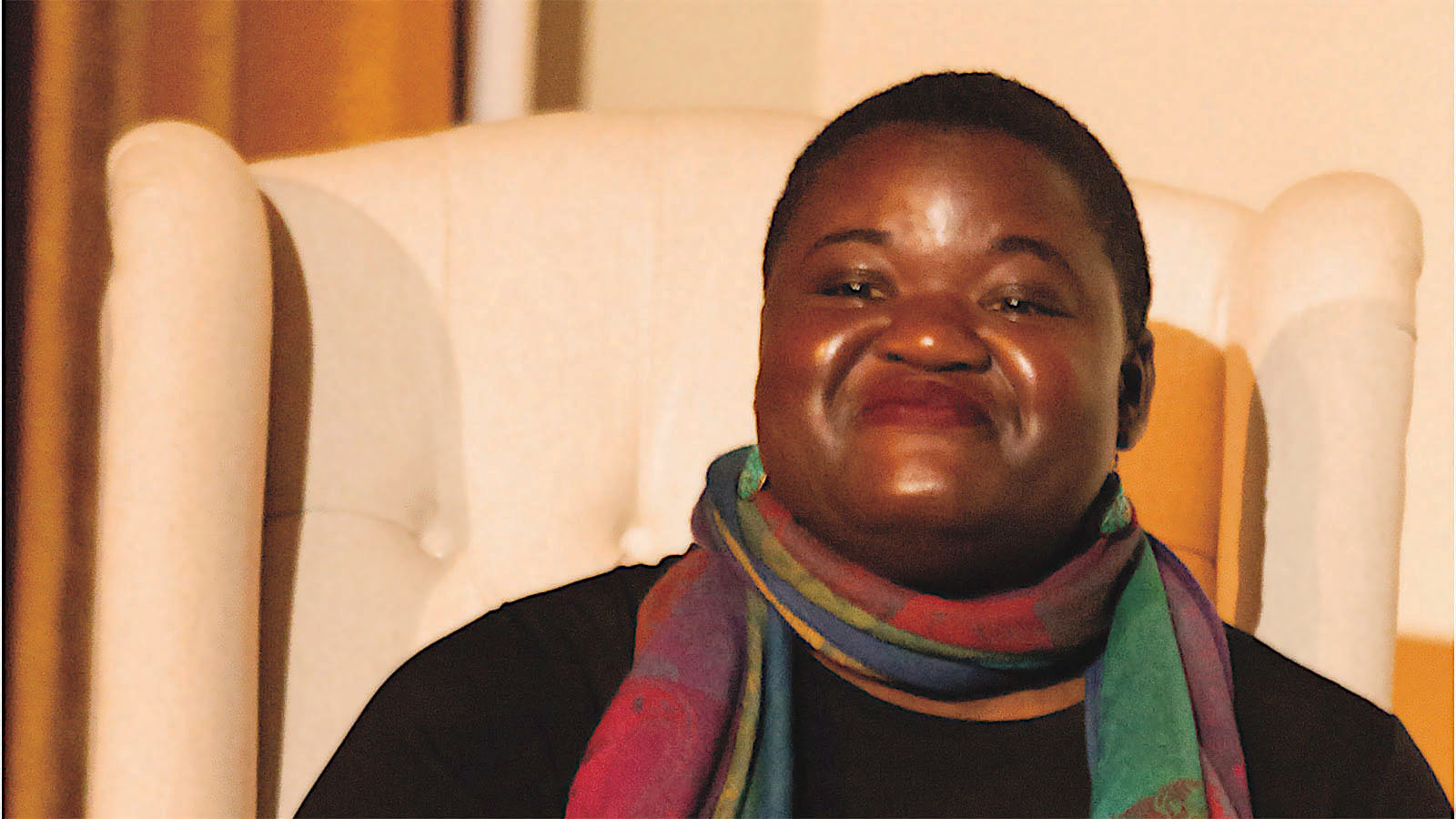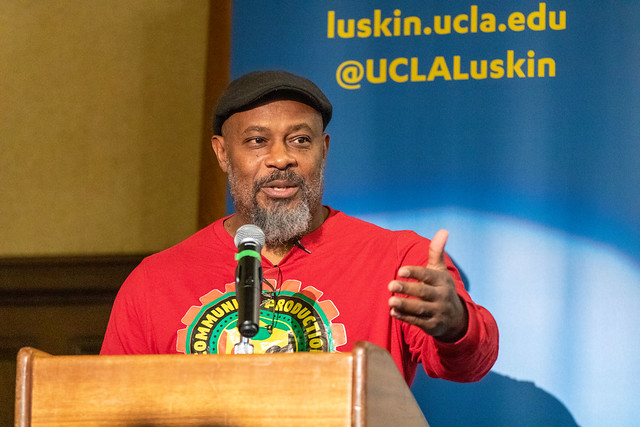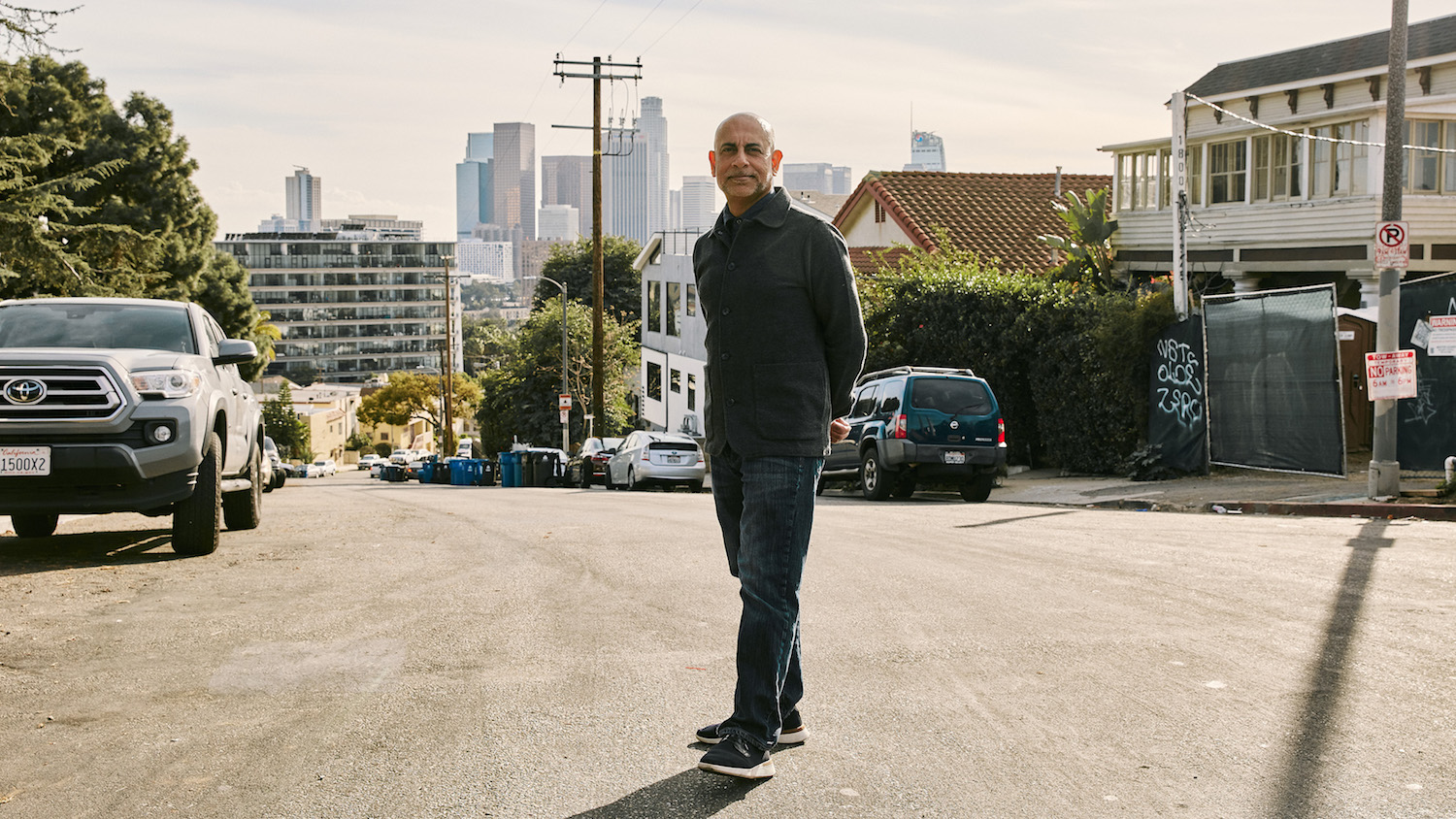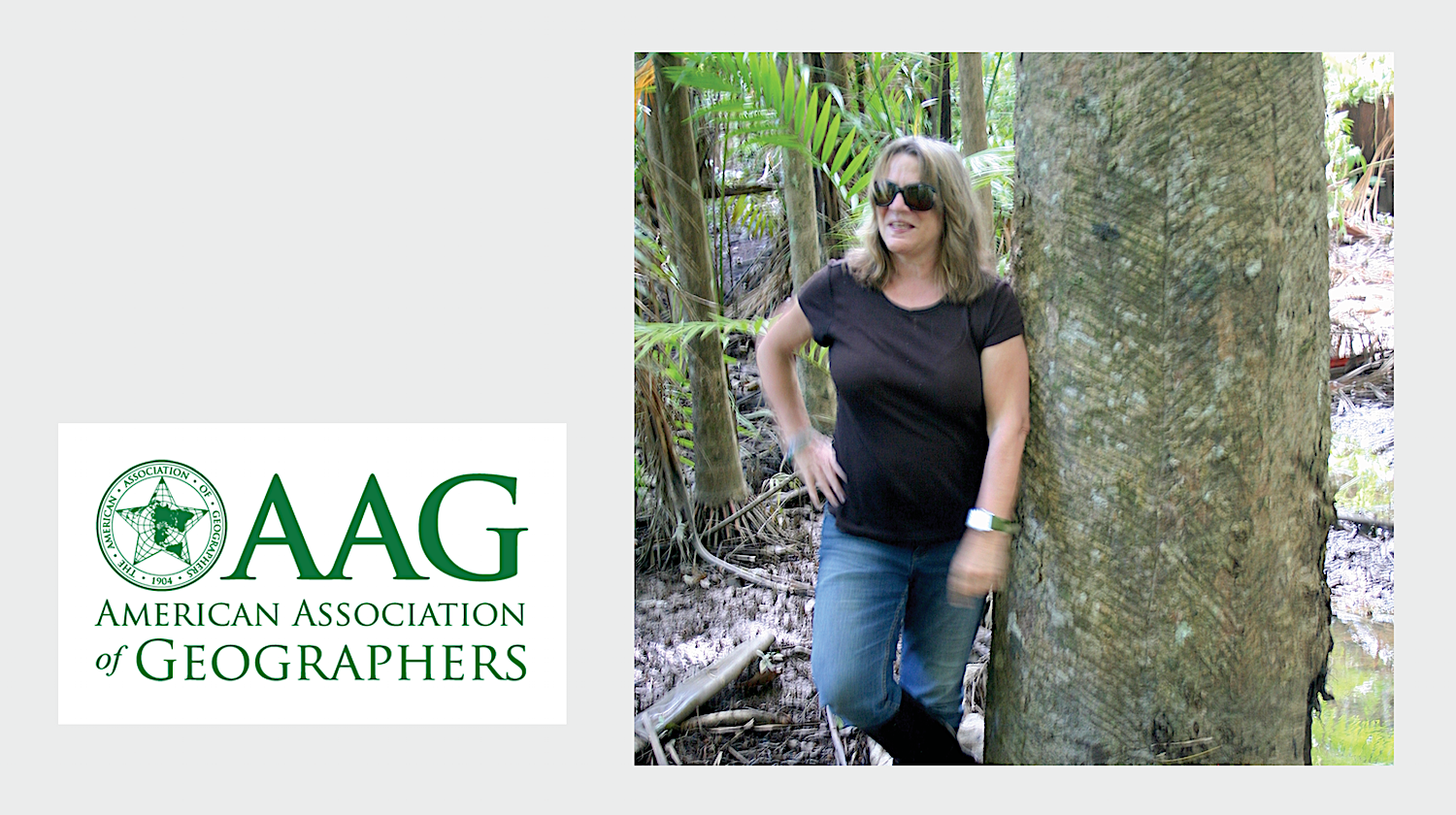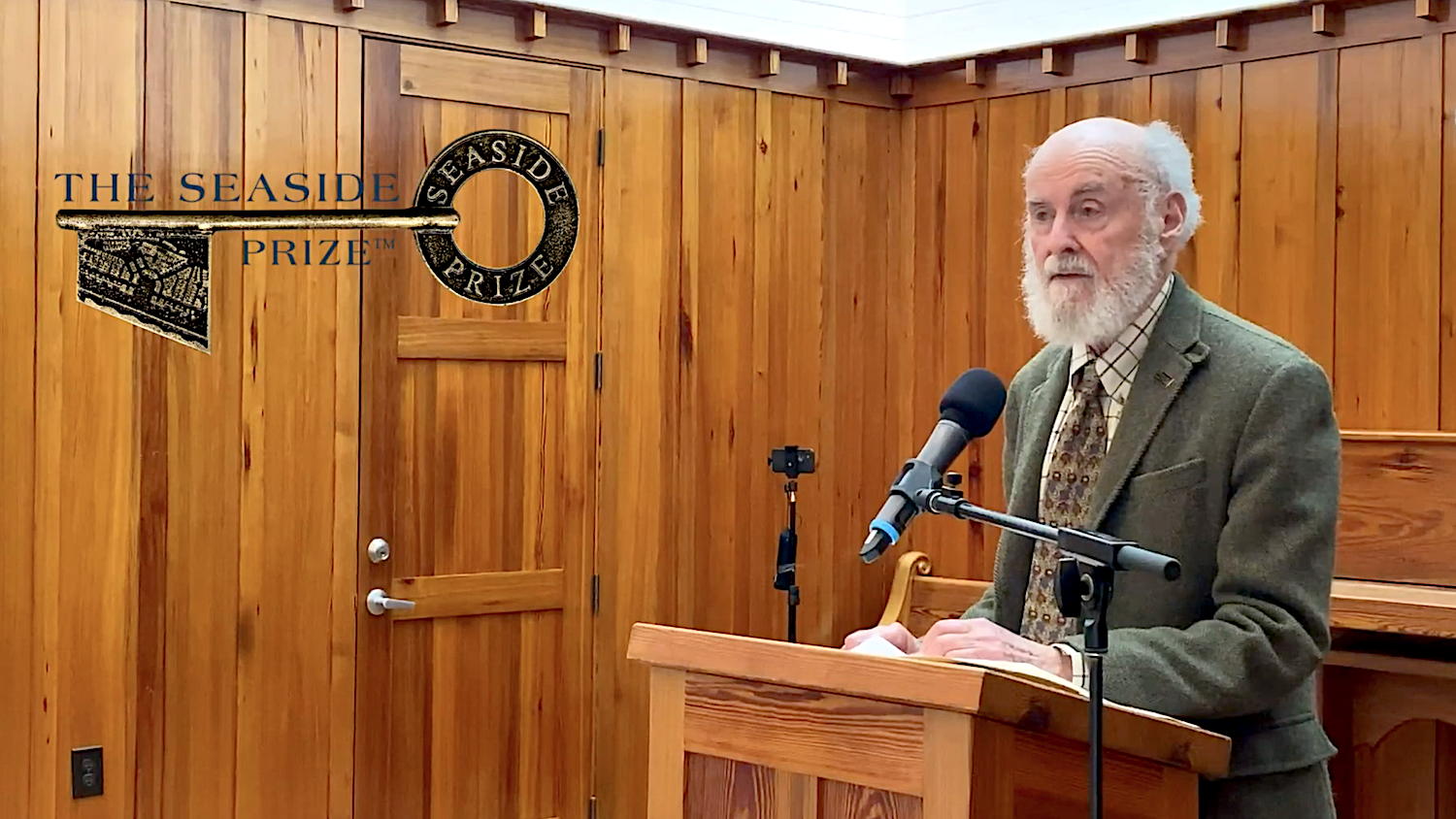Santos Co-Chairs Workshop to Help Gender-Diverse Youth
On April 25, Carlos Santos, associate professor of social welfare, co-chaired an event by the National Academies of Sciences regarding oppressive policies that have affected the livelihoods of gender-diverse youth. The workshop, part of the Forum for Children’s Well-Being, focused on steps needed to ensure that queer people of color are supported and valued in all environments. “We hope to spotlight gender-diverse scholars, practitioners and those doing work directly with these populations,” Santos said. “We also want to underscore the need for an intersectional lens in doing this work as gender-diverse youth live at the intersection of various forces that can impact their lives, be it racism, heterosexism, ableism, classism and nativism.” The workshop highlighted research surrounding the health and well-being of gender-diverse youth as well as evidence-based guidance on the most effective ways to support them. Organizers also shared the voices of gender-diverse individuals, their parents and community leaders who are working to create a more inclusive community. They spoke about the challenges that youth deal with and what they need most to improve their health and well-being. Federal and state policies on health care for gender-diverse youth were reviewed at the workshop, which also emphasized the importance of breaking binary classroom structures that place students into male and female categories. Moving past these binary conventions will create a more inclusive environment for gender-diverse youth and will promote trans liberation, participants said. — Aminah Khan
Bills Earns Rising Star Award for Transportation Analysis
Tierra Bills, assistant professor of public policy and civil and environmental engineering, has received the 2023 Zephyr Rising Star Award for her work modeling travel demand through an equity lens. The award recognizes individuals early in their career who advance transportation and land use decision-making for the public good through improved travel analysis. Bills is “passionate about outreach to underserved populations and transport impacts on disadvantaged communities,” the Zephyr Foundation said in a statement announcing the award. “In addition to brilliant, traditional academics (papers, NSF grants), she has testified to Congress and has written a popular press blog, and is even highlighted in a coloring book.” Bills, an expert on the socioeconomic impacts of transportation decisions, is also affiliated with the Institute of Transportation Studies at UCLA Luskin. The nonprofit Zephyr Foundation advocates for improved travel analysis and seeks to facilitate its implementation to promote equity, shared prosperity and sustainability. The organization said it selects Rising Star Award recipients who are collegial and collaborative; willing to invest time in volunteer roles including mentoring; respectful and thoughtful in interactions; and goal-oriented toward the public good, even if the pathway is unconventional.
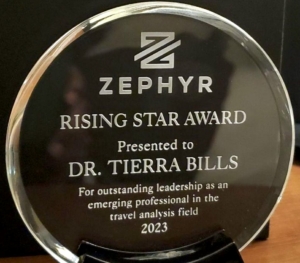
Photo courtesy of Tierra Bills
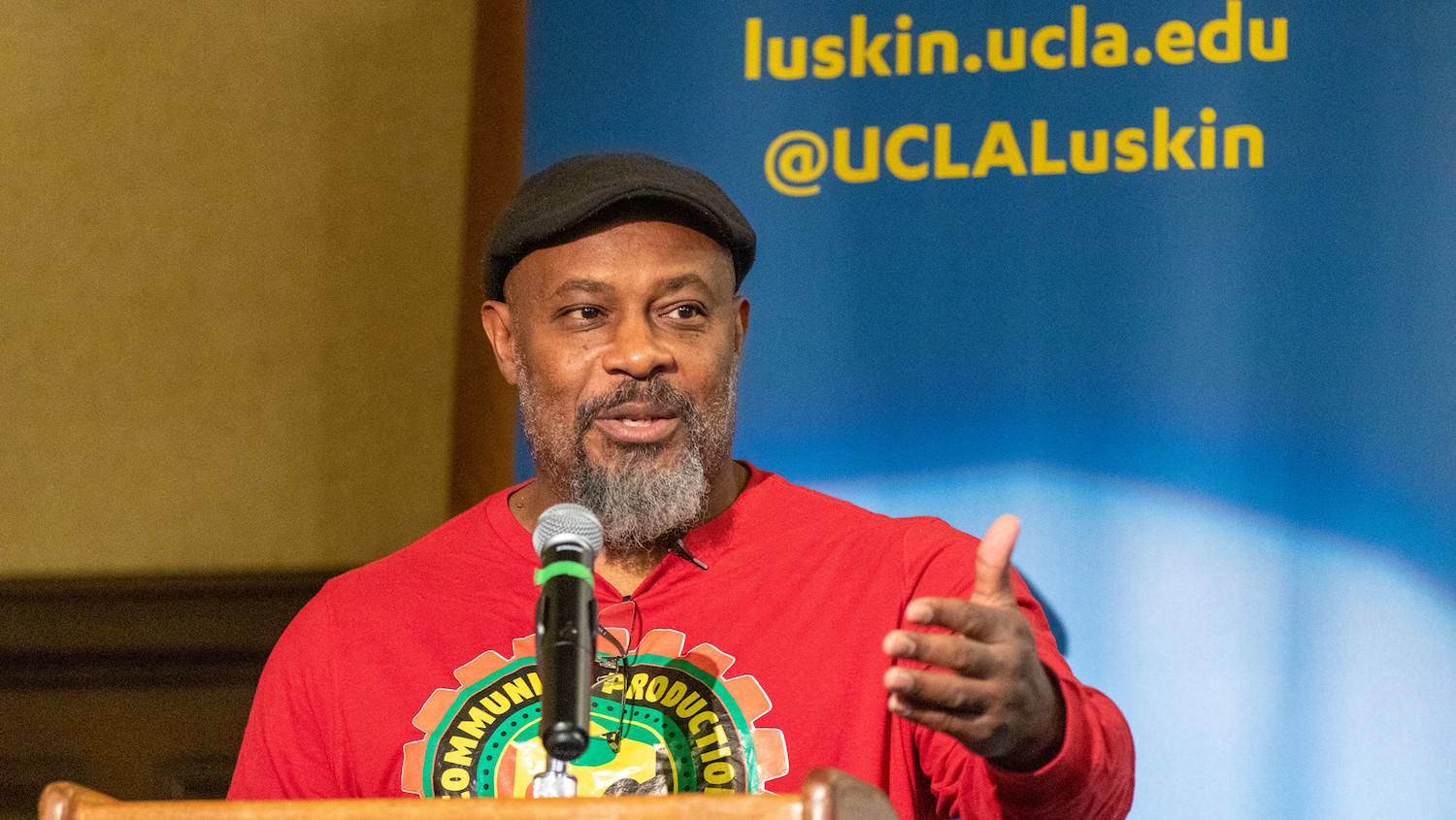
A Call to Come Together for Climate and Economic Justice
Activist and author Kali Akuno came to UCLA not just to share stories about his lifetime of advocacy for economic and climate justice, but to inspire his audience to join the fight. “I am here as an organizer to recruit you. To motivate you, struggle with you and get you to move in some particular ways,” Akuno told a standing-room-only crowd at the Charles E. Young Grand Salon at UCLA’s Kerckhoff Hall, part of the UC Regents’ Lecture Series. Akuno is co-editor of “Jackson Rising Redux: Lessons on Building the Future in the Present,” released on the same day as his April 11 talk. The updated collection of essays chronicles Jackson, Mississippi’s successful grassroots coalition-building, led by Cooperation Jackson, a nonprofit co-founded by Akuno. That emphasis on the power of coming together permeated his UCLA visit, which included an on-stage dialogue with Assistant Professor of Public Policy Jasmine Hill and office hours with students the following day. During his lecture, Akuno acknowledged that those who work against entrenched government and economic systems often become discouraged, “feeling that we are without a program, that we are without vision and oftentimes that we are without hope.” But the post-pandemic world has opened up a “profound period of opportunity,” he said, calling on progressive groups to set aside ideological and policy divisions, build a level of trust and just get to work. “I need you here in L.A. doing the best work that you can do, building as much power as you can build, and then let’s figure out how to be in dialogue with each other to build the future that we want.”
What Large Metropolises Can Learn From Ghettos and Granny Flats
Urban planning professor Vinit Mukhija is known around the globe for his shrewd insights into what shantytowns and other self-built neighborhoods can teach large metropolises about smart urban planning. With its shortage of affordable housing, Los Angeles can benefit from the pragmatism and ingenuity emanating from these “informal” developments, Mukhija told UCLA Magazine. “I wanted to make better cities, where people are better to each other. And this means taking the best of what economically disadvantaged people build for themselves — slums or ghettos or, as in L.A., unpermitted developments within existing homes,” Mukhija said. His research suggests that, of the more than half-million single-family houses in the city of Los Angeles, at least 50,000 of them have some kind of accessory dwelling unit, many unpermitted. “Instead of trying to wipe them out, we should be bringing them into the mainstream,” he said. In the magazine profile, Mukhija also speaks of planners around the globe who think about the design of a community rather than a single dazzling building. And he offers guidance to governments grappling with the dearth of affordable housing: Provide property owners with grants and loans to upgrade their informal units to safe levels in return for a guarantee that they will not increase rents on any tenants for several years. Also needed: the construction of social housing, as “we cannot expect cities to become inclusive, magically, by themselves.”
Hecht Honored by American Association of Geographers
Susanna Hecht, professor of urban planning and director of the UCLA Center for Brazilian Studies, received the Stanley Brunn Award for Creativity in Geography from the American Association of Geographers in Denver on March 24. The award is given annually to an individual geographer or team that has demonstrated originality, creativity and significant intellectual breakthroughs in geography. Hecht, who also has an appointment at the UCLA Institute of the Environment and Sustainability, is one of the founding thinkers of political ecology. She has published research on anthropogenic soils, agroforestry and the land management practices of indigenous and Afrodescendant peoples in Brazil; how cattle farming, soy production and mining in the rainforest drive unsustainable land use, deforestation and climate change; and how forests have been shaped by human engagement throughout history. Hecht’s publications include “Fate of the Forest: Destroyers and Defenders of the Amazon,” co-authored with Alexander Cockburn, and “Scramble for the Amazon and the Lost Paradise of Euclides da Cunha,” which won the Melville Prize for best book in Latin American environmental history, awarded by the Conference in Latin American History, in 2014. She also co-edited “The Social Life of Forests: The Past, Present and Futures of Wooded Landscapes.” Hecht has been actively involved in social movements in Amazonia, including the Forest Peoples Alliance in Brazil, and is a member of the Science Panel for the Amazon.
Read a Q&A with Hecht about the state of the Amazon rainforest on the UCLA Latin American Institute website.
UCLA Study Highlights How Alcohol Use Contributes to Firearm-Involved Suicide
A new UCLA study shows an association between acute alcohol use and a higher probability of firearm-involved suicide in the United States. The findings published today in the Journal of the American Medical Association’s online open-access journal, JAMA Network Open, also suggest a point of alcohol intoxication where individuals have a lower degree of motor coordination, resulting in a lower probability of using a firearm in suicide. As alcohol consumption increases, the probability of a firearm-involved suicide normally increases. But at a specific blood alcohol concentration level — around 0.40 grams per deciliter (g/dL) for men and 0.30 g/dL for women — the probability starts to decrease. The study was co-authored by Mark S. Kaplan, professor of social welfare, and Shannon Lange of the Center for Addiction and Mental Health in Toronto, Canada. “Our study is a unique and important contribution to our understanding of risk factors associated with suicides involving firearms, which account for over half of all suicides — more than 47,000 in 2021 — in the United States,” Kaplan said. In the cross-sectional study, the dose-response relationship between blood alcohol concentration and the probability of using a firearm as the method of suicide is described as an inverted U-shape for both male and female decedents. The study used mortality data from the National Violent Death Reporting System from 2003-2020. The analyses were restricted to solitary or single-victim suicides among men and women 18 years and older. The authors urge interventions targeting heavy alcohol use, which may bolster efforts to reduce the suicide mortality rate, particularly those involving a firearm.
Read the full report
Seaside Prize Recognizes Shoup’s Pioneering Work on Parking Reform
Donald Shoup, distinguished research professor of urban planning, received the 2023 Seaside Prize, which honors those who have significantly influenced how towns and cities are built and rebuilt to promote walkability, affordability, diversity, beauty and sustainability. The nonprofit Seaside Institute cited Shoup’s decades of radical rethinking regarding parking policy: “In his groundbreaking 2005 book ‘The High Cost of Free Parking’ and his work since then, Shoup changed the way cities view the relationship between parking and the built environment, traffic congestion, energy consumption and local economic development.” The Congress for the New Urbanism recently republished its original review of the book, which it credited with sparking a recent surge of parking reforms across the country. Shoup accepted his award at a symposium in Seaside, Florida, a community designed around the principles of New Urbanism. When he launched into the study of parking decades ago, the topic was “the lowest rung on the status ladder,” he said, but times have changed. “Attitudes toward planning for parking are beginning to shift from thoughtless acceptance to thoughtful criticism, and many planners now agree that parking reforms are necessary. Parking is far too important not to study.” The symposium featured other members of the UCLA Luskin community including doctoral student M. Nolan Gray, author of “Arbitrary Lines: How Zoning Broke the American City and How to Fix It,” and alumnus William Fulton, an urban planning consultant, author and former government official who studied under Shoup in the 1980s and helped present the Seaside Prize.
Watch the Seaside Prize award ceremony
